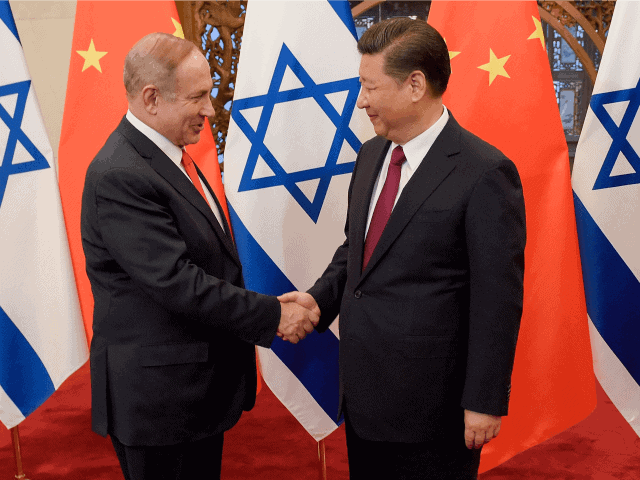Report: U.S. Demands Israel Sever China Ties Posing Security Risk

The U.S. has called on Israel to sever ties with China in areas with security risks, The Jerusalem Post reported Tuesday citing a U.S. official with intimate knowledge on the matter.
Asked whether the establishment of an Israeli version of the Committee on Foreign Investment in the United States (CFIUS) would satisfy the U.S., the official answered: “I’d go further. Reduction of entanglements overall. Elimination in critical areas altogether.”
“A CFIUS-type mechanism is a good start,” he added.
He added the demand was not exclusive to Israel. “We’re having similar conversations with all of our allies and partners,” he said.
On a visit to Jerusalem last week, Secretary of State Mike Pompeo expressed his concerns over Chinese investments in Israel.
The U.S. has been vocal about its opposition to China’s involvement in Israel and has called on Israel to regulate it. Last month, Prime Minister Benjamin Netanyahu’s office established an advisory committee into the matter, but its recommendations are nonbinding.
The report cited the U.S. official as saying Israel must be prepared to take concrete measures to radically cut down its ties with China.
“I don’t think polite deflection will cut it anymore,” he stated. “This is a high priority for the U.S..”
In discussions on the matter until now, “the Israeli side has politely acknowledged our concerns without committing to action,” he said.
China is Israel’s third-largest trading partner.
The U.S. has expressed concerns over Israel’s joint ventures with China in technology field, especially artificial intelligence, satellite communications and cybersecurity. The report pointed to Huawei and ZTE, among other Chinese technology giants investing in Israel, who have known security breaches.
Earlier this month, U.S. Ambassador to Israel David Friedman claimed China uses its investments and infrastructure projects to “infiltrate” countries.“They crept up on the entire world in a benign but dangerous way. They didn’t do it with rockets and tanks; they did it with cheap labor projects,” he said, adding that “these [Chinese] companies have the ability to flick various switches and gain access to the most sensitive communications.”
Among the Chinese tender acquisitions in recent years are Tnuva, Israel’s largest dairy producer, the Carmel tunnels, the Ashdod and Haifa seaports, and Tel Aviv’s light rail.
The government-owned CRRC, China’s largest company in the infrastructure field, will supply rail cars and communications equipment for Tel Aviv’s rail “red” line along with a few smaller Chinese companies. But CRRC also supplies cars for the subways in four Iranian cities including the capital, Tehran, in complete contravention of Israeli law preventing any foreign company doing business in Iran from operating in Israel.
The Israeli security establishment is fearful that the the deal will expose Israel to major security threats – especially in light of the fact that the red line passes sensitive security facilities include the Defense Ministry, the IDF headquarters and the head offices of the Shin Bet in Tel Aviv.
The Shin Bet has exposed multiple attempts by Chinese intelligence to wage cyber warfare against top Israeli military, security and civilian companies, including as the Israel Aerospace Industries, Elbit and Rafael, all of which have partnerships with American companies.
Photo: Etienne Oliveau/Pool Photo via AP











